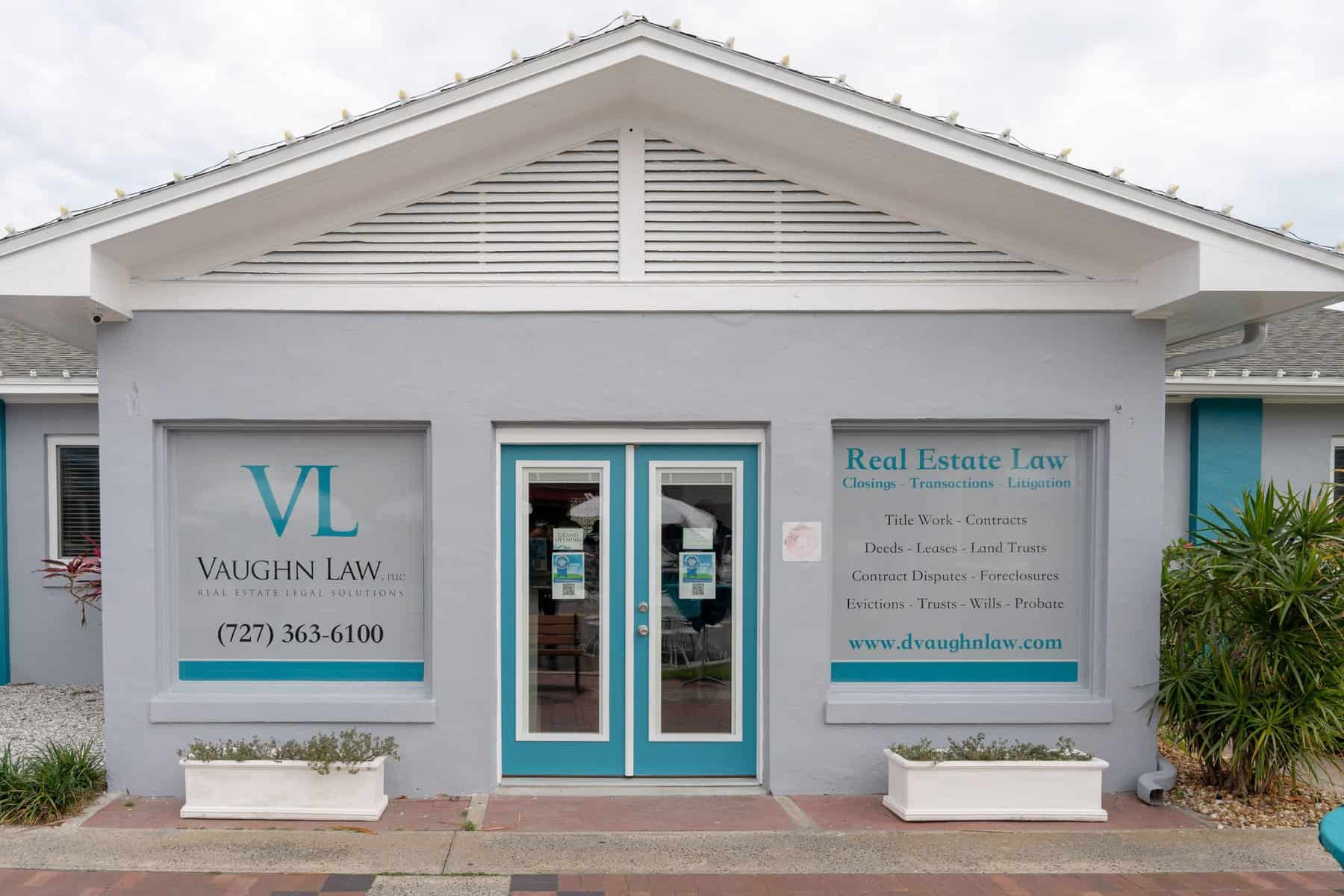Probate
Probate
- The Process of winding down a decedents affairs
- Appointment of a personal representative
- Determination of validity of will
- Paying claims
- Distributing assets
- Filing necessary tax returns
It is important to know that having a will does not avoid Probate. If you want to avoid Probate you will need a trust based estate plan. Contact Vaughn Law for a consultation to discuss this further.
Summary Administration vs. Final Administration
There are different types of Probate Administration in Florida.
Formal Administration is the traditional procedure for winding down a decedent’s affairs. This procedure can be used with any Probate regardless of assets but is a lengthy process that requires proper notice to be provided to those creditors who are known or unknown to the estate.
Summary Administration is an expedited process to wind down a decedent’s affairs for small estates.
To qualify for a Summary Administration the following must be true:
- Less than $75,000, and
- Dead more than two years
- Or if the decedent only owned a homestead property, regardless of value
Process of Probate
- Open the Estate
- Intestate vs. testate
- Prove the Will
- Letters of Administration
- Administer the Estate
- Gather and inventory the assets
- Provide notice to creditors
- Deal with creditors
- Sell Assets
- File Necessary income tax returns
- Close the Estate
- Obtain Orders to sell assets
- Transfer assets to beneficiaries or Heirs
- Final Accounting
- Closing letter from IRS
How do the Estate Documents affect a Probate?
| WITH NO WILL | WITH A WILL | WITH A TRUST | |
|---|---|---|---|
| At Incapacity (unable to handle your financial affairs) | Court Control: Court appointee oversees your care, must keep detailed records, report to the court and usually post a bond (even if appointee is your spouse). Court oversees and approves all expenses & financial affairs. | Court Control: Same as no Will. | No Court Involvement. The named successor trustee manages your financial affairs and distributes your estate according to the instructions I your Trust. |
| At Death | Probate: Court orders your debts paid and assets distributed according to state law. | Probate: Same as no Will, but assets distributed per your will (if valid and any contests unsuccessful | No Probate. Debts paid and assets distributed by named successor trustee pursuant to Trust provisions. |
| Costs: Court, Legal and Executor | Death: Estimated 3-8% of estate’s value. Incapacity: Costs increase due to additional oversight | Same as no Will Costs may increase if Will is contested. | Minimal or no court costs. Reduced legal fees. |
| Time | Death: Usually 6 months to 2 years. Can be longer if sale of real property involved. Incapacity: Court involved until recovery or death. | Same as no Will. | Death: Assets distributed and debts paid within a short period of time unless Trust specifies payment to an heir/beneficiary over time. Complex estates may take longer for tax returns. Incapacity: No delays. |
| Flexibility & Control | None: Court processes, not your family; you have no control at incapacity or death. Whey you die assets are distributed according to state law. | Limited: Same as no Will, except when you die assets are distributed according to your Will. | Maximum. You may change or terminate your Trust at any time. Assets remain in your Trust regardless of incapacity or death. |
| Privacy | None: Court proceedings are public. | None. Same as no Will. | Maximum Trusts are not public. Your estate and distribution of assets remains private. |
Problems with Probate
- Invitations for controversy or dispute
- Expensive for court costs and attorney fees
- Lack of Privacy the proceedings are public
- Potential for delays
Benefits to Probate
- Resolve creditors claims with finality
- The proceeding is supervised by the court to ensure assets are properly disbursed
- If you know there will be controversy
- Trust issues
How to Avoid Probate
Ensure there are no assets in the client’s name that do not automatically transfer to another upon the client’s death.
- Deeds
- Life Estate Deed, or Enhanced Life Estate Deed or Lady Bird Deed
- Joint Ownership
- Real Estate and joint bank accounts
- Lifetime Gifts : a gift made during the life of the decedent removes it from the estate
- Beneficiary Designations:
- Payable On Death (POD) – cash distributed to beneficiaries
- Transfer on Death (TOD) – assets distributed to beneficiaries
- Revocable Living Trusts
- Fully funded Trust means that the Trust will handle assets at decedents death
Get in touch with us

Address
350 Corey Avenue, St.
Pete Beach, FL 33706

